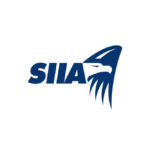By Mike Lanza
In our industry, there is much hesitancy to review in-network claims for billing errors and unnecessary treatment. One concern is that an audit will take too much time and may violate prompt pay rules, but that concern should not prevent a detailed audit process that could potentially save the Plan (i.e., employer) significant claim costs. Prompt pay rules are in place for clean and uncomplicated claims. If a payer believes a claim audit is necessary to validate the payment because of the complicated nature of a claim, the claim is no longer a clean claim. The payer has the right and responsibility to request additional information from the provider to audit the claim.
While it’s true that the PPO contract controls the rate paid, it should not control how the claim is billed. In other words, just because a provider is in-network does not mean the Plan has no right to audit the bill to ensure it is paid according to the Plan document.
For example, USBenefits reviewed a high-dollar in-network claim for billing errors. The claimant was transferred to two different hospitals during their treatment and had billed charges of almost $4 million. The main hospital stay was billed at over $3 million for just over a month inpatient, with a PPO allowable of 1.7 million. Quick math tells you the PPO was ready to pay an astronomical $56,000 a day for this treatment compared to the norm acceptance of $10,000 a day.
USBenefits sent the claim to a cost containment vendor who identified a treatment that was not medically necessary because it did not follow the proper medical treatment protocol. The vendor prepared an extensive report citing the correct medical protocols that the provider should have followed. This reduced the payable from $1.7 million to just under $600,000 – a savings of over $1.1 million. While we’d like to say this was the end of the story, take the win and move on, unfortunately, the saga continued.
The claimant was transported by air to another hospital in the same city. Reviewing the air ambulance log and medical records, the vendor determined that the air transportation was not medically necessary. In their determination, ground transportation would have been faster and more cost-effective. Therefore, the TPA denied the air ambulance charge of seventy-six thousand dollars as not medically necessary.
The stay at the second hospital also had treatment that was not medically necessary for an additional savings of over $225,000, bringing the overall savings to almost 1.5 million dollars.
This success can only be accomplished with a strong partnership between USBenefits, the TPA, and the vendor.
So, is it worth the time and effort to review in-network claims? At USBenefits, we believe it is.





